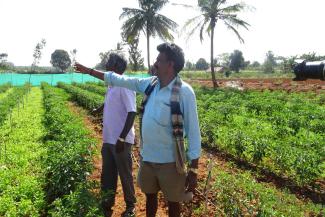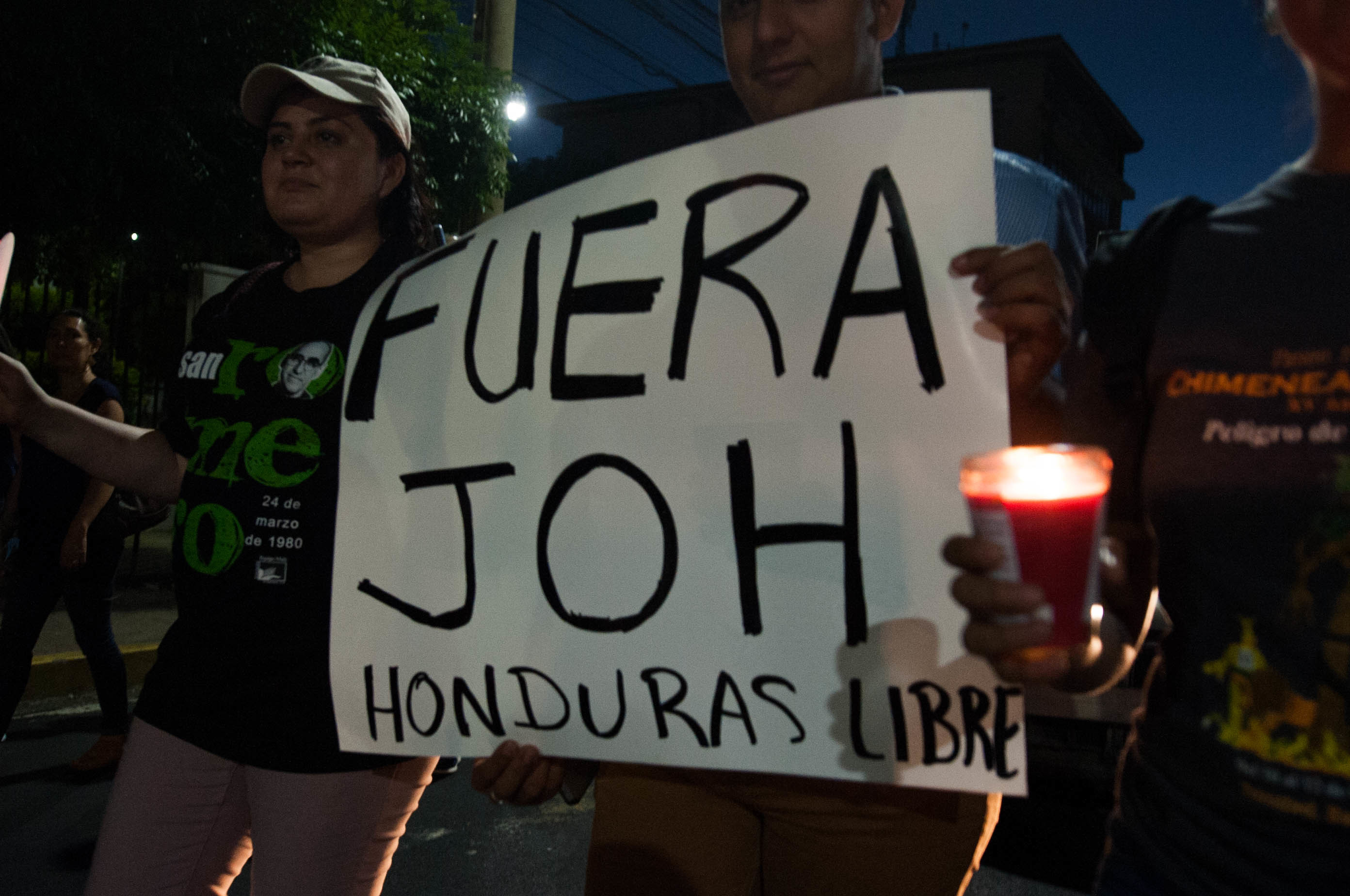Organic farming
Feeding 10 billion people

Important reasons for promoting organic farming include the damage done to climate, soil and water resources. Conventional agriculture is a huge part of the problem, according to data published recently by the UN International Resource Panel. The statistics show that agriculture accounts for about 60 % of biodiversity loss and 24 % greenhouse gas emissions internationally. In Germany, conventional farming has caused about 75 % of the dwindling of insect populations in the past 30 years, according to NABU, an environmentalist lobby group.
At the III. World Organic Forum, which was held in Kirchberg an der Jagst in March, Hartwig de Haen, emeritus professor of agricultural economics at the university of Göttingen and former officer of the UN Food and Agriculture Organization (FAO), pointed out these trends. He added that about one third of the world’s farmland is degraded, and almost two thirds of fish stocks have been exhausted.
The proponents of organic farming are convinced that their approach is the only response to these depressing trends, but de Haen is not convinced. In his eyes, organic farming is a niche business. Its advocates, he says, have yet to prove that organic farmers can indeed produce the food amounts humanity needs. Given that there still is a huge and untapped potential in developing countries, he does not consider it completely impossible. After all, many smallholder farmers cannot afford chemical inputs and machinery, so they are actually running organic operations, which are not certified as such and therefore do not show up in addition statistics.
On the other hand, de Haen warns that organic farming requires more land to grow the same amount of food as conventional farming does. Today, certified organic farms only account for about one percent of the world’s fields. According to de Haen, it should be possible to increase this share to 20 % without needing more land.
He considers two things indispensable in this context:
- Food waste and harvest losses should be reduced by 25 %.
- The space used for producing animal feed should be reduced. Currently about one third of the world’s fields serve that purpose. One implication would be that western lifestyles with meat-intensive diets would have to give way to more vegetarian food.
Experts expect the world population to grow to 10 billion people by 2050. De Haen doubts that organic farming will expand in a way to feed all of them, though he does not say it is impossible. He thinks humanity needs “an intelligent mix of improved conventional and organic approaches”.
Hartmut Vogtmann disagrees. He is a full professor of ecological farming at Kassel University. An academic pioneer in this field, he says that such a compromise cannot work. He speaks of “system failure” and insists that economic growth cannot and does not follow a linear path. The current agricultural paradigm puts farmers evermore at disadvantage, making them depend increasingly on the fertilisers and pesticides the chemical industry produces, the scholar argues. Given that research is mostly funded by multinational corporations like Bayer, which recently bought its US-based competitor Monsanto, alternative approaches are largely neglected.
In view of corporate managers’ focus on chemical inputs and hybrid seeds, Vogtmann calls for a U-turn. The focus should be on health, not profits. He considers conventional food to be too cheap because the costs of the production-related environmental damages are not included in retail prices. The damages do not only include environmental degradation like the loss of biodiversity, but also low farm revenues. In Vogtmann’s eyes, policymakers and business leaders must rise to their responsibilities – and so must consumers. He says that everyone has a role to play in ensuring the transition to sustainable lifestyles around the world.
Eco-friendly products are being hyped in Western countries, but their share in supermarket sales is still quite small. In developing countries, there generally is no market for such products, though there are some exceptions (see box).
Swiss researchers have compiled statistics on the matter. They work for the Research Institute of Organic Agriculture (FiBL), an independent, international, non-profit institute that advances cutting-edge science in the field of organic agriculture. In cooperation with the International Federation of Organic Argriculture Movements (IFOAM), the FiBL publishes the annual Report on the State of Organic Agriculture. According to its data, Australia is the world leader with 58.8 million hectares used for organic farming. Argentina (3 million ha) and China (2.3 million) are in the 2nd and 3rd place respectively. While the share of organic farming is very small the USA, this country has the biggest retail market for organic products. In 2016, people there spent the equivalent of about € 40 billion on such goods. That was about half of the global expenditure. Germany (€ 9.5 billion) and France (€ 6,7 billion) followed suit. In terms of per-head spending, Swiss consumers are the most committed to organic food. According to FiBL scholar Helga Willer, they buy organic food worth an annual average of € 274. The next in line are the Danes (€ 227) and the Swedes (€ 197).
Willer says that 30 % of the eggs sold in Denmark are organic, so “you cannot call this a niche anymore”. In absolute numbers, however, she still considers organic farming a niche industry. In Europe, organic food only accounts for 7.7 % of sales. Internationally, the figure is a mere 1.5 %, and it drops to only 0.5 % in developing countries. Among developing countries, Argentina has the most advanced market for organic goods, followed by China, Uruguay and India. As Willer emphasises, organic farming “has been expanding fast in recent years – and it keeps expanding further”.
Link
FiBL and IFOAM, 2018: State of Organic Agriculture in the world.
https://shop.fibl.org/CHde/mwdownloads/download/link/id/1093/?ref=1














